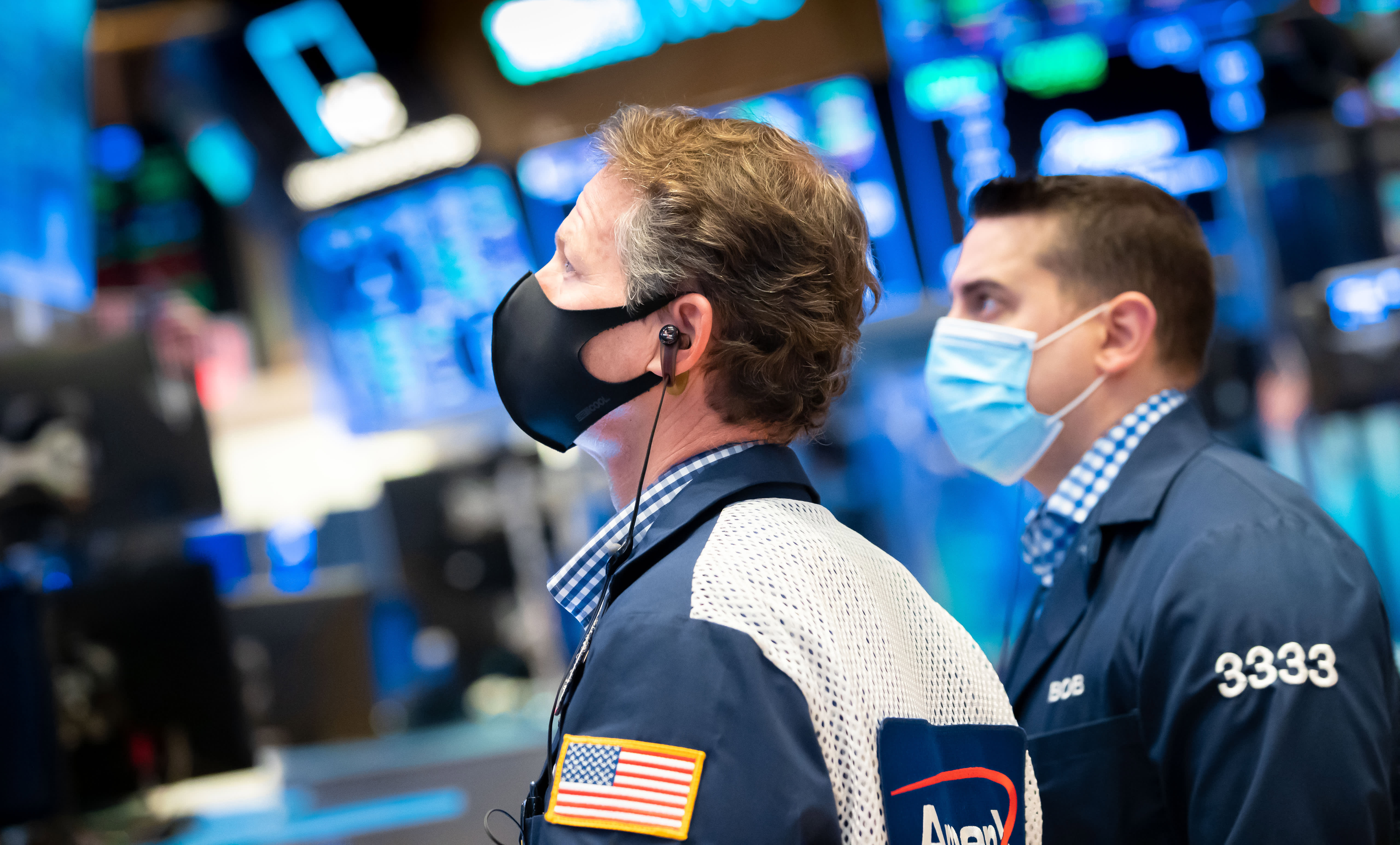U.S. stock index futures advanced in overnight trading on Tuesday as the market tried to reclaim record highs.
Contracts tied to the Dow Jones Industrial Average gained 42 points. S&P 500 futures and Nasdaq 100 futures each gained 0.14%.
The move came after the major averages closed lower on Tuesday, giving up early gains that pushed stocks to record highs at the opening bell. Both the Dow and S&P 500 snapped three-day winning streaks, each falling 0.22%. The Nasdaq Composite, meanwhile, slid 0.38%.
The Russell 2000 closed 1.85% lower, for its third straight negative session.
In Washington, lawmakers continued to disagree over direct payments to Americans. Senate Majority Leader Mitch McConnell blocked Senate Minority Leader Chuck Schumer’s effort to fast-track the bill, passed by the House late Monday, that would increase checks to $2,000 from $600. Stimulus payments could go out as early as Tuesday evening, Treasury Secretary Steven Mnuchin said.
President Donald Trump has supported higher payments, and on Tuesday said in a tweet that the move should be approved “ASAP. $600 IS NOT ENOUGH!”
With just two trading days left in the year, the major averages are on track to end 2020 higher. The Dow is up 6.3% for the year, while the S&P 500 has gained 15.36%. Despite some recent selling pressure, the Russell 2000 is still up 17.4% for the year.
But the clear year-to-date winner remains the Nasdaq Composite, which has gained 43%.
“We expect strong economic growth to reemerge in 2021 in the wake of headwinds from the pandemic in 2020 and the U.S.-China trade war in 2019,” said Brian Demain, portfolio manager at Janus Henderson Investors. “While leadership has thus far been narrow – limited mostly to the digital economy – we foresee a broadening recovery as vaccines are widely implemented and consumers are able to reengage with the physical economy,” he added.
The number of Covid cases continues to tick higher. The U.S. is now recording at least 180,905 new cases and at least 2,210 virus-related deaths each day, based on a seven-day average calculated by CNBC using Johns Hopkins University data. On Tuesday, the U.S. confirmed its first case of the faster spreading coronavirus strain that was initially discovered in the U.K.
Some investors say that another potential headwind for stocks looking forward is the run-up in some of the year’s hottest stocks.
Interactive Brokers Chairman Thomas Peterffy said Tuesday on “Squawk Alley” that a “fantastically unusual” thing has happened in recent days: his customers are net short the market for the first time ever.
“Our customers tend to be on the selling side of options, and there is such demand for these out of the money options that our customers tend to become sellers,” he said. “So the Robinhood folks are long these options, and Interactive Brokers customers are short these options,” he added. In other words, while not necessarily an outright bet on downside ahead, customers are taking advantage of such high demand on the other side.
Charles Bobrinskoy, vice chairman at Ariel Investments, reiterated the dangers of a momentum-driven market.
“It cannot be the case that the way to win in investing is just to buy what’s gone up the last couple of years,” he said Tuesday on CNBC’s “Closing Bell.” “That works in momentum markets. Momentum markets are wonderful until they turn. But when they turn, it is ugly,” he said.
Subscribe to CNBC PRO for exclusive insights and analysis, and live business day programming from around the world.
